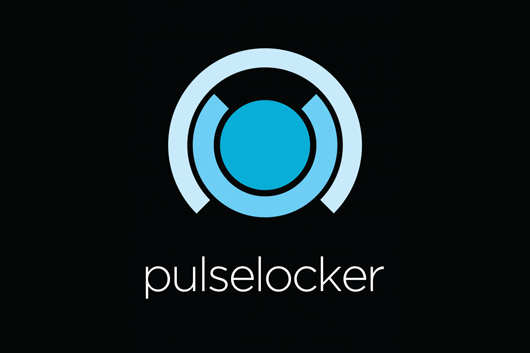Pulselocker Launches DJ-Focused Streaming and Cloud Service
Launched today, Pulselocker is a brand-new online service for music lovers with a penchant for […]

Launched today, Pulselocker is a brand-new online service for music lovers with a penchant for unearthing new tunes. But what makes it stand apart from sites like Rdio or Spotify is its special focus on DJs and DJ culture. The San Francisco-based team behind Pulselocker—which includes an ex-employee of Om Records and a former member of UK house trio Dirty Vegas, among others—call it “the first streaming and locker service for DJs.” Curious to better understand their product, we got in touch with the Bay Area company to ask a few questions and get an in-depth overview of Pulselocker.
Essentially, users can choose from a variety of subscriptions, ranging from a free service which allows “limited streaming” and purchasing (à la iTunes or Beatport) all the way up to the full-fledged “Top-Tier” subscription, which includes “unlimited streaming” and a Locker with room for 1,000 tracks at the cost of $59.99/month. Using the Locker—which is tethered from the website to your computer with a small piece of PC- and Mac-compatible software called Pulselocker Sync—is sort of like having an extra external hard drive, although the music can’t leave the Locker. As the Pulselocker team explained to us on a phone call, “You can’t drag [the tracks] out of the Locker, you can’t put them in iTunes and try to burn them [onto a CD]; the tracks are 100% secure in the Locker. We do that not by DRM-ing the tracks themselves, but by DRM-ing the actual folder that contains them.” The music is, however, entirely compatible with Traktor and Serato (with more usable interfaces in the works) while it’s inside the Locker, and can be played from the Locker at will until the user decides to un-sync it from their cloud or just purchase the actual file. All playback from the Locker can be done both on- and offline.
In regards to selection, we were told, “At the moment, we have over 4 million tracks from about 25,000 labels. By the end of the year, we’re expecting to have over 10 million tracks. We can’t say we’ll have all of the independent music industry [on Pulselocker], but that’s pretty much it. Besides that, there are the major labels, and we are in advanced conversations with all of them, too.” Most of that upcoming music will arrive from Pulselocker’s deal with Merlin, an agency which represents such premier labels as Warp, Domino, Ninja Tune, !K7, and Beggars Group, among others. As for now, XLR8R readers will be happy to find music from Ghostly, Planet Mu, Dirtybird, Hyperdub, Turbo, RAMP, Brainfeeder, Needwant, PMR, and beyond.
Genres also play a huge role in Pulselocker’s music discovery system. Currently available genres range anywhere from standard “house” or “techno” tags, to such convoluted terms as “indie-dance-nu-disco” and “deep-dubstep.” Users are also encouraged to create their own subgenre tags, as well as specialized playlists to promote the associated songs. And all of this music is available to stream online as 160kbps M4A files, with the Locker-synced files being 320kbps M4As. Though they aren’t currently available, WAVs and AIFFs are said to be in the works for sometime next year.
Royalties have become a major issue, as of late, especially when it comes to compensation for streaming music, so it’s reassuring to know that Pulselocker hasn’t let that detail fall by the wayside. “Of course, every time that somebody listens to a track, we are going to be paying the aggregators and the labels,” the team told us. “When that user decides they want to DJ that track, drop that track in the Locker, and play that track in Traktor or Serato, we pay again a higher ratio if that track is played for more than 90 seconds. And if they decide to purchase the track, we will be monetizing the track three times through the entire process.” Pulselocker didn’t disclose the actual rates that it would be paying out.
Strictly from a user standpoint, Pulselocker appears to have a lot to offer already: selection, affordability, easy-to-use interface, networking possibilities, customization, and more. And though there is currently no platform available for user-submitted material, no social networking integration outside of Facebook, no ownership of artist and label profiles, and no blatant focus on securing any “advance” or “exclusive” content special to Pulselocker, the team tells us that those features aren’t far from becoming a reality. “The way we look at it is that this is just the beginning,” they explained. “We have meetings regularly talking about where we go from here, and there’s a ton of ideas that we’re looking at for the future. This is day one, but there are tons of features that will be coming up in the next months and years.”

